Building Strong Children
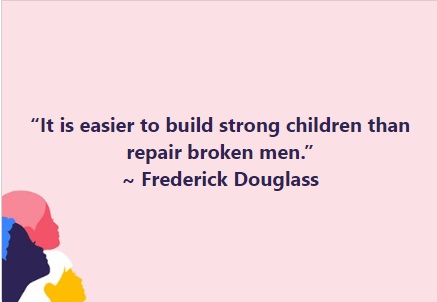
Building stronger children is a concept we hear about in political debates, but completely ignore in practice.

Building stronger children is a concept we hear about in political debates, but completely ignore in practice.
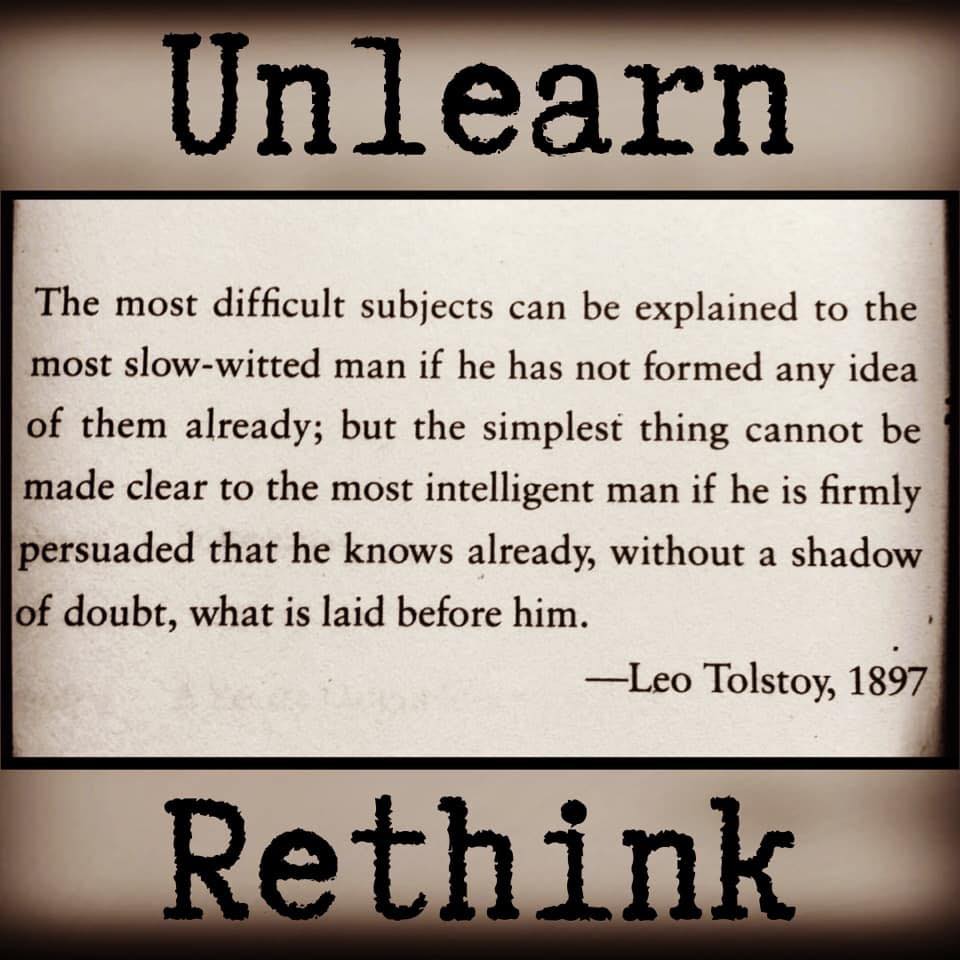
In our highly politicized world here in the United States, for example, there are two basic views on Trump: a) he’s a criminal who needs to be prosecuted, convicted, and imprisoned, and b) he’s being unfairly hounded, and the U.S. would do well to re-elect him in 2024.
I like to think of myself as an open-minded guy, but I have to admit that I’m pretty firmly entrenched in the “a” camp.

About 20 years ago, I was coaching one of my nephews on his college assignment to write an essay on Pope John Paul II’s work which attempted to reconcile faith and reason.
I explained that this is what Catholics have been trying to do for at least 800 years with the work of Thomas Aquinas, who tried to use the principles of logic as laid out by Aristotle to prove the existence of God. Descartes picked this back up 300 years ago.
Both are well regarded by theologians today, but this has never worked for me. As I told my nephew, you can’t have your metaphysical cake eat it too.
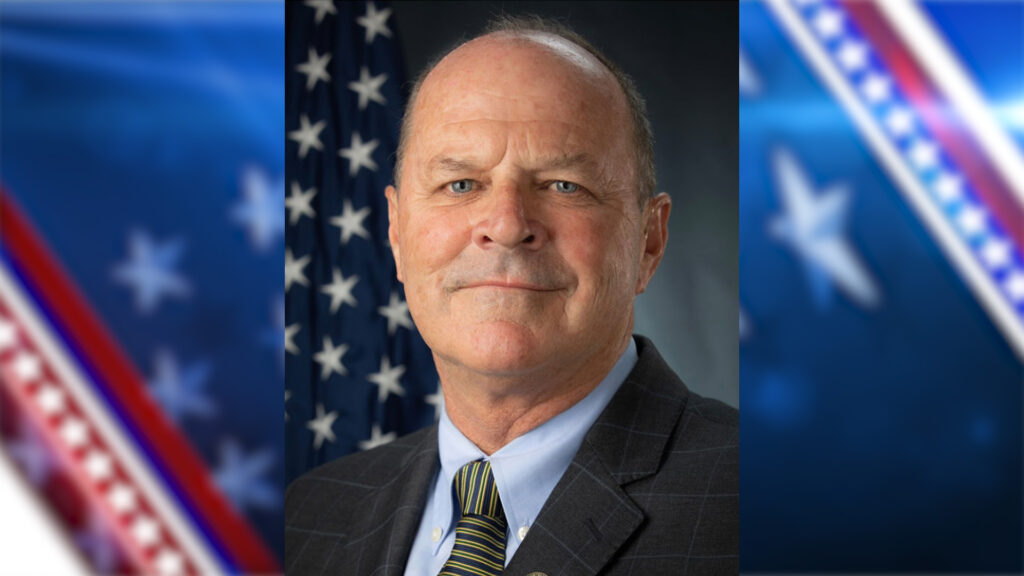
As an example, I got a call the other day from a campaign worker for Mike Stoker, a candidate for state assembly in California. She began our conversation:
Can I count on you to vote for Mike Stoker (shown here) on election day?
Me: No. I’ve never heard of him. What should I know about him?
Stoker rep: He’s a conservative Republican.
Me: Well, that’s a deal-breaker right there.
Stoker rep: Aren’t you in favor of small business?
Me: Are you kidding? Are there people who are against small businesses?
Stoker rep: OK, but don’t you think they’re over-regulated?
Me: In general, no. In fact, what type of idiot thinks that the hundreds of different industry sectors in which small businesses operate are all over-regulated?
Seeing that this was going nowhere, she gave up. She was polite, but she recognized that there were greener pastures to be found elsewhere in her database.
My take from this is that many if not most voters believe in gross over-generalities like the one that she was trying to exploit with me.

Hence, I’m for the guy below, which I scoop up immediately and reuse over a period of decades.

I agree, but apparently stuff like that makes the news in merry old England; it really doesn’t here. As I told him, “Wow. Here in the U.S., half the country lives on “hatred and division.” It’s what makes our news cycles turn, and it’s why the polls for the midterms are a statistical tie in most races.
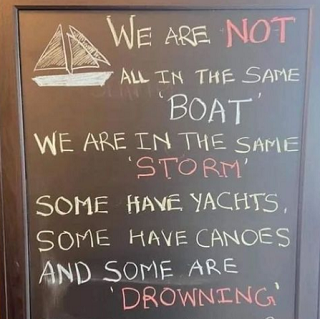
Decent people see this as morally unacceptable, given that the technology exists to avert a great deal of this misery. Unfortunately, how “decent people” perceive this set of problems has very little bearing on how things will turn out.
As suggested in the meme here, wealthy people have the means to avert all conceivable aspects of environmental disaster. They can buy whatever food and water is still available; they can move to higher ground, and build walls around their property and hire more police to keep the masses of starving climate refugees off their tennis courts.
The vast majority of the scourge of environmental ruin will land squarely upon the people who a) were least responsible for causing it, and b) are financially unable to protect themselves from it.
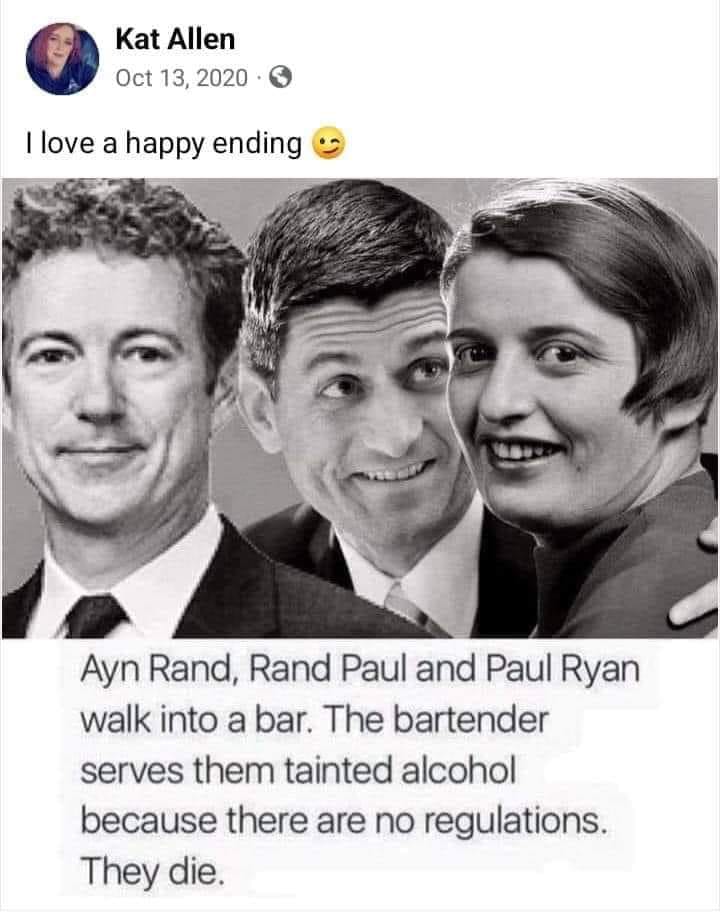
Moving our society’s functions into the private sector is an appealing notion …until we begin to think about its consequences. And in no arena is this more apparent than the environment, where unregulated businesses happily use our atmosphere and waterways as their own private sewers.
“Capitalists abhor waste,” a spokesperson for the libertarian CATO Institute said in an interview, attempting to convince me that for-profit enterprises have a compelling motivation to regulate themselves.
No, they abhor wasting money. If by “waste” you’re talking about things like toxic waste streams that result from their manufacturing processes, in general, they are fine with directing that poison in the direction that costs them the least, regardless of the damage it does to the surrounding world.
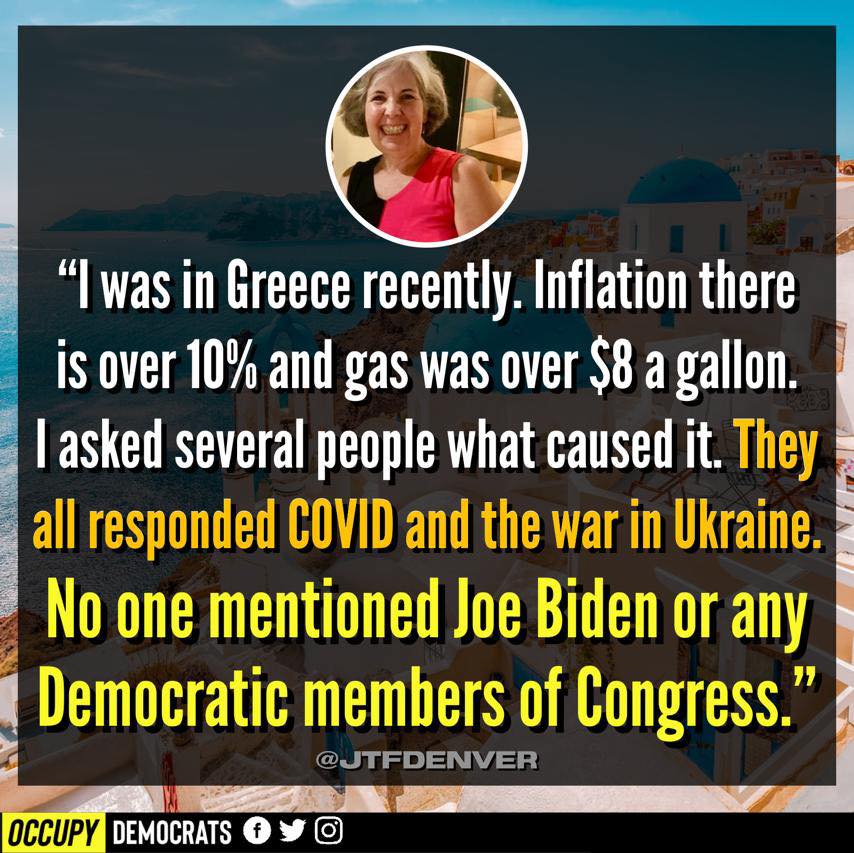
If you have that type of QAnon mind, some of this garbage may make sense to you. But you also need to put aside the fact that the disease was raging in every other country around the globe.
Suppose a huge percentage of U.S. doctors were willing to lie and cheat. Did the same thing happen in Iceland, New Zealand, Japan, Israel, France, Australia, Switzerland, and Argentina?
To buy into this, you have to be stupid beyond words.

If the coup attempt goes unpunished, we’re essentially saying that using “force or fraud” to stay in power is a completely legitimate undertaking.